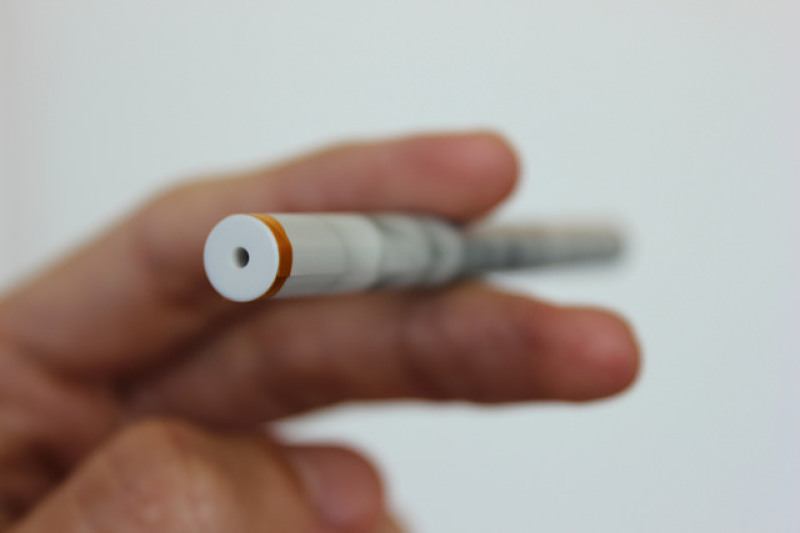
Food and Drug Administration has now put e-cigarettes under the same regulations as other cigarette and tobacco products.
The new regulations will ban the sale of e-cigarettes to youngsters under the age of 18, and customers will have to show their photo IDs before buying them. The e-cigarettes from now on will carry package-warning labels, and each product will have to be approved by FDA.
Earlier, e-cigarettes were sold in the market without significant government oversight and became immensely popular, especially among middle and high schoolers.
The US Centers for Disease Control and Prevention say that the use of e-cigarettes among middle and high school students grew from 1.5 percent in 2011 to 16 percent in 2015.
The battery-powered e-cigarette devices heat up different flavors ranging from mocha to bubble gum, and have triggered a "Wild West" phenomenon, with "vape" products easily being accessible to young people.
Sylvia Burwell, secretary of Health and Human Services, and FDA commissioner Dr. Robert Califf announced new the regulations yesterday at a press conference.
"As cigarette smoking among those under 18 has fallen, the use of other nicotine products, including e-cigarettes, has taken a drastic leap," said Burwell. "All of this is creating a new generation of Americans who are at risk of addiction."
Several studies have tried to show that smoking e-cigarettes help people quit smoking, and have less nicotine content which makes them less harmful than the regular cigarettes. However, experts say that incessant e-cigarette use by underage school-going children is dangerous and has potential of causing life-long addiction.
FDA also extended the existing rules to thoroughly scrutinize tobacco product ingredients, health risks posed by them, and their product design.
"This action is a milestone in consumer protection -- going forward, the FDA will be able to review new tobacco products not yet on the market, help prevent misleading claims by tobacco product manufacturers, evaluate the ingredients of tobacco products and how they are made, and communicate the potential risks of tobacco products," the FDA informed on its website.
"From a health perspective, to reduce the social acceptance of them is good because frankly, it's the wild, wild West out there. Vape stores are everywhere," said Ellen Hahn, a professor at the University of Kentucky College of Nursing and co-chair of the UK Tobacco-free Task Force.
The e-cigarette industry has raised concern over the effect of new regulations on their business. A regulatory consulting company SciLucent LLC say that the new rules will impose high cost on manufacturers and nicotine producers, ranging from $2 million to $10 million per product.
"This is going to be a grim day in the history of tobacco-harm reduction," said Greg Conley, president of the American Vaping Association, an industry-funded advocacy group. "It will be a day where thousands of small businesses will be contemplating whether they will continue to stay in business and employ people."
FDA has given the industry two years to comply with the regulations and submit applications for their products. But, the stores will have to start practicing the new rules within three months (90 days) of the official publication of regulations (May 10).



















